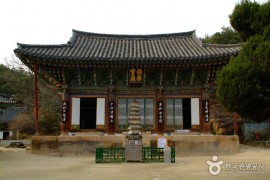| Festival | Significance | Events | Date | Food |
|---|---|---|---|---|
| Seollal | New Year’s Day | Sebae(New Year’s greetings), Charye(Ancestral ceremony), Yunnori(Traditional game) | 1st day of first month | Tteokguk(Traditional soup made of rice cake), Yakwa(Honey cakes) |
| Daeboreum | First full moon | Geuybulnori(Rice field burning), Daljip Taeugi(Bonfire), Aengmagi Taeugi(Talisman burning) | 1st full moon of first month | Ogokbap(Rice made of five grains), Yaksik (Glutinous rice), Bureom (nuts), Gwibalgisul (alcoholic beverage) |
| Meoseumnal | Festival for servants | Singing, Dancing, Coming-of-age ceremony | 1st day of second month | Songpyeon(Traditional rice cake made with the grains) |
| Yongdongje | Celebrating the god of wind | Jesa(Traditional ritual to appease the god of wind) | Second month | Regular food for Jesa |
| Samjinnal | Celebrating the coming of spring | Archery, Cockfighting, Fortune telling | 3rd day of third month | Hwajeon(Rice pancakes), Dugyeonju(Azalea wine) |
| Hansik | Start of farming season | Visit to ancestral grave for offering rite, and cleaning and maintenance. | 105 days after Winter solstice | Cold food only: Ssuktteok(Mugwort cake), Ssukdanja(Mugwort dumplings), Ssuktang(Mugwort soup) |
| Chopail | Buddha’s Birthday | Lantern festival | 8th day of fourth month | Different types of Tteok, Dumplings, Special dishes made of fish |
| Dano | Celebration of spring and farming | Washing hair with Changpo, Ssireum(Korean wrestling match), swing, giving fans as gifts | 5th day of fifth month | Variety of Tteok, Herb rice cakes |
| Yudu | Water greeting | Bathing and washing hairs to wash away bad luck | 15th day of sixth month | Noodles |
| Sambok | Hottest day of the summer | Hot dishes are made on this day. Cold baths are believed to make people weak. | Between sixth and seventh month | Samgyetang(Chicken soup) |
| Chilseok | Meeting day of Gyeonwoo and Jiknyeo in Korean folk tale | Fabric weaving | 7th day of seventh month | Miljeonbyeon(Wheat pancake), Milguksu(Wheat noodles) |
| Baekjung | Time with hundred of fruits’ and vegetables’ seeds | Resting, Performing rituals | 15th day of seventh month | Food made of potato, flour, and wheat along with a variety of wild vegetables |
| Chuseok | Harvest festival | Charye(Ancestral ceremony), Ssireum (Korean wrestling match), Visiting ancestral grave sites. | 15th day of eighth month | Songpyeon(Pine flavoured rice cake stuffed with chestnuts, sesame or beans), Torantang(Taro soup) |
| Jungu | Double Ninth Festival | Danpung-nori(Viewing the changing color of maples during autumn) | 9th day of ninth month | Gukhwajeon(Chrysanthemum pancake), Eran(Roe), Yujacheong(Honey citron tea) |
| Sangdalgosa | Ritual performed to the House gods | Performing a ritual to the house gods, Coiling a golden rope around the House, Spreading a layer of red clay on the floor | Tenth month | Different types of Tteok |
| Sondolpoong | Ritual performed to appease the wind | Usually boatmen and fishermen perform Jesa for Sondol. | 20th day of tenth month | Regular food for Jesa |
| Dongji | Winter Solstice | Rites to dispel bad spirits | Eleventh month | Patjuk(Red bean soup) |
| Seotdal Geumeum | New Year’s Eve | Cleaning up the house, Preparing for Seollal | Last day of the year | Food for the next day, Seollal |


